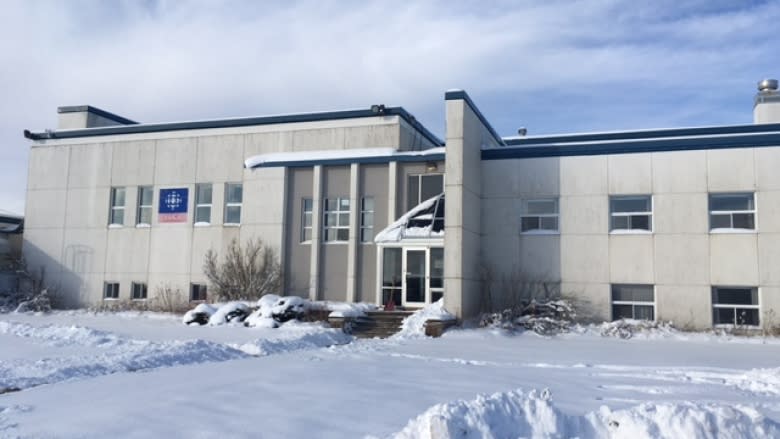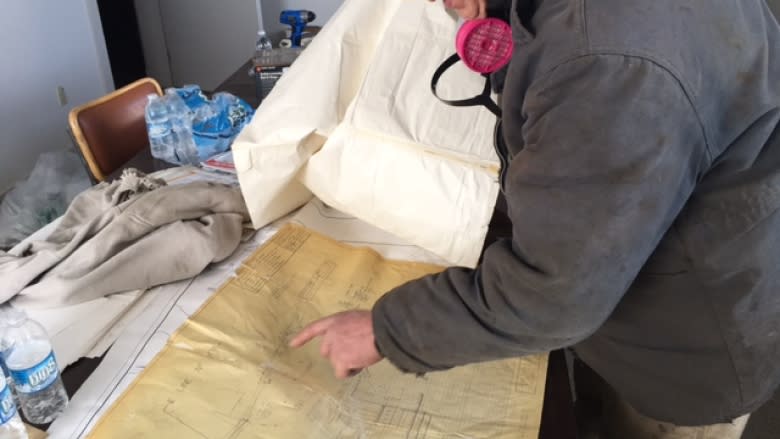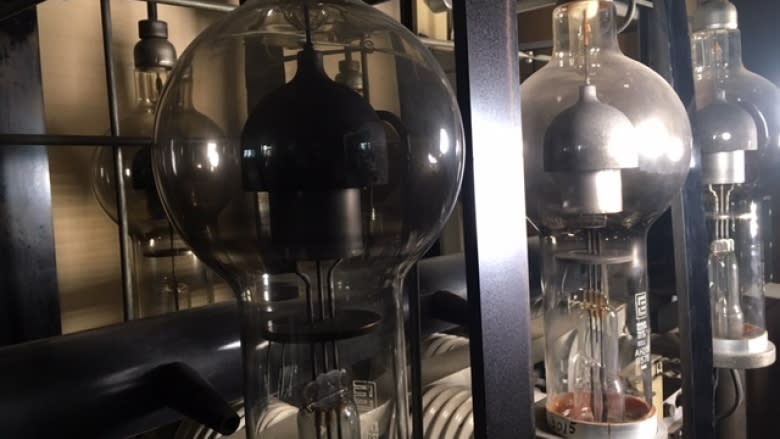'It's like Frankenstein's lab': Massive 78-year-old transmitter for sale
A piece of radio history could be yours for $5,000.
A 1940 RCA 50 kW shortwave transmitter, located at the decommissioned Radio Canada International Site in Sackville, is up for sale.
The transmitter is a small room, about five metres long by two-and-a-half metres wide, and it's filled with lever, buttons, glass tubes and wires.
The property was bought in February 2017 by Mi'gmawe'l Tplu'taqnn Incorporated (MTI), a group of Mi'Kmaq First Nations. Jesse John Simon, the group's executive director, said workers are still taking electronic components apart and removing old equipment that won't be needed now that property is no longer a broadcast site.
The old transmitter doesn't work anymore, said Marc Goldstein, an mechanical engineer helping to take out equipment no longer needed, adding it was decommissioned in the 1970s.
"It took three men to operate this radio," he said.
"We're trying to find a home for it."
Lots of character
Goldstein said the group is asking $5,000 for the transmitter. While it no longer works, he said it does have character.
"It's like Frankenstein's lab," said Goldstein.
Tasked with finding a buyer, he reached out to Amanda Dawn Christie. She made an art film based on the towers and the site's rich history. Christie passed word of the historic transmitter via her social media accounts.
"I emailed her asking if there was a home for this thing and she started a wildfire," Goldstein said.
While people interested in the transmitter have been reaching out, there are no takers so far.
"A couple of the fellows thought this was still operational. They wanted to use it as a radio, but now they know it's a museum piece, there's still some interest in the components."
Rich history
The transmitter was kept on site so visitors could get a sense of RCI's history. Opened in 1944, the first RCI broadcast went out over the airwaves, transmitted to spots around the globe from Sackville's 13 towers.
But after budget cuts in 2012, CBC announced that the shortwave service would end after 67 years of broadcasting. The towers were taken down after a buyer couldn't be found for the site as it was.
Simon said the group has hopes for the 222-acre property. But for the time being, the group plans to remove everything not needed, while maintaining the building.
"What we want to do is generate some economic development for the First Nations, and this is our first foray into a multi community investment," said Simon.
He said some ideas already brought forward were medical marijuana, honey production and retail. The group is considering options at the moment, but Simon said one important factor is whatever is developed on the site must be a good environmental fit.
The site is near wetlands, and the group doesn't want any heavy industry damaging it.




